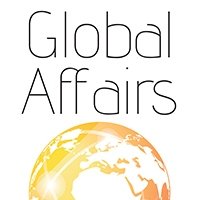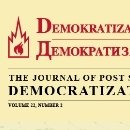(APA) A forceful solution to conflicts in the South Caucasus remains, Sergey Markedonov, a Russian political analyst and associate professor at State University for the Humanities based in Moscow (Russia), said in his lecture entitled “Transcaucasia: Are the conflicts over or still ahead?” at the State Central Museum of Contemporary History of Russia. Markedonov said conflicts in the South Caucasus have been overshadowed in recent years, stressing that the Nagorno-Karabakh conflict, however, still remains in the spotlight.
“In April 2016, we saw an escalation in this conflict, which is often referred to as ‘a four-day war’ in the media. It was the biggest escalation since the signing of the ceasefire agreement on 12 May 1994,” said the political analyst. “Following that escalation, the chiefs of general staffs of Azerbaijan and Armenia came to an agreement on a ceasefire. However, that didn’t mean ceasefire because the ceasefire is constantly violated along the 193km-long line of contact surrounding Nagorno-Karabakh, as well as the state border between Azerbaijan and Armenia.”
“Iran is the only country today that has declared it does not recognize the renewed Madrid principles, which is considered to be a regulating document in respect of the Nagorno-Karabakh conflict,” said Markedonov, stressing that Tehran is in favor a solution with the participation of regional countries, with no foreign players involved.
“Tehran does not agree with one of the items of the renewed Madrid principles. This item implies the deployment of international peacekeepers in the conflict zone, which Iran sees as a threat to its national security,” he said.
Turkey is a strategic ally of Azerbaijan, and it is the only country in the region that openly supported Azerbaijan during the four-day war, Markedonov noted.
He continued: “In addition to Turkey, Ukraine also supported Azerbaijan at that time. Other countries, Russia, the United States, and the EU took a very balanced position. We can say that the South Caucasus is a field of competition between Russia and the West. But this does not mean that the interests of Russia and the West contrast in all the conflicts in the region. As to the Georgia-Ossetia and Georgia-Abkhazia conflicts, the positions of Russia and the West do not overlap, but we do not see this in the Nagorno-Karabakh conflict. On the contrary, the interests of Russia and the West in the resolution of this conflict are not very much colliding. A clear proof of this is the meeting in Moscow of the foreign ministers of Russia, Azerbaijan, and Armenia on April 28. The co-chairs of the OSCE Minsk Group and the Personal Representative of the OSCE Chairman also participated in that meeting.”
According to the political analyst, the Karabakh conflict is the only conflict in the post-Soviet area about which mutual cooperation between Russia and the West has not stopped. […]
Read More © APA News











